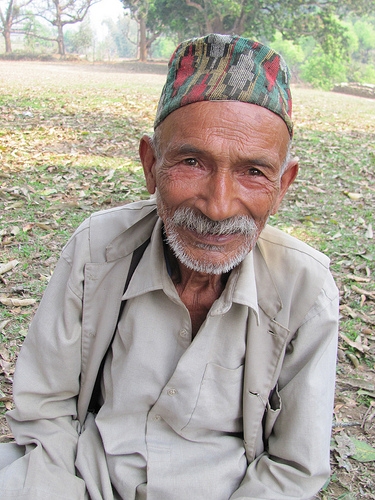- About
- Topics
- Story
- In-Depth
- Picks
- Opinion
- News
- Donate
- Signup for our newsletterOur Editors' Best Picks.Send
Read, Debate: Engage.
| July 09, 2018 | |
|---|---|
| topic: | Good Governance |
| tags: | #Zimbabwe, #cannabis, #Dagga, #Marijuana |
| located: | Zimbabwe |
| by: | Cyril Zenda |
Health minister David Parirenyatwa recently announced that there was no going back on a policy announcement published in the Government Gazette in April under which the country would issue licences for the production of cannabis for medicinal and scientific purposes.
This is despite efforts by his colleagues in government to stop the move citing the moral and social concerns raised by community and religious leaders to the establishment of cannabis estates in a country that is already struggling with a serious problem of drug and substance abuse, especially among the unemployed youths.
In a move that took many by surprise, in April the government announced that it was going to issue licences for the production of marijuana for medical and scientific purposes, making it the second African country, after Lesotho, to go this route. Most other African states are still taking a wait-and-see stance on the industry.
The news was received with wild celebrations among the youths, with some dancehall singers even composing praise songs to thank President Emmerson Mnangagwa for the move. In a few days after the announcement, more than 350 applications had been received for the US$50 000 licences.
This caused the government to panic prompting the deputy minister of Finance, Terrence Mukupe, to announce the suspension of the move until a proper feasibility study had been carried out.
The Finance ministry – despite being in desperate need for extra income streams – appeared to share the concerns of many Zimbabweans, most of who fear under-regulated production of cannabis, especially in a country where lawless is rife and where powerful politicians and government officials also commonly double up as farmers, could lead to the dangerous substance produced under this news system easily finding its way to the streets which are already flooded with illicit drugs.
“If the authorities are unable to control what (drugs) is already there, what assurance do we have that marijuana from these farms will not end up being sold to youths on the streets,” asked Elton Moyo, an advocacy officer with Brighter Future, a non-profit organisation that is fighting drug abuse in Zimbabwe by using sport to take youths away from the streets. “We need assurance from the government that this move will not worsen the problem that the country is already facing.”
Similar concerns were raised by religious groups that do not see morality in the country increasingly focussing on production and export of dangerous substances to earn foreign exchange. Zimbabwe is already a major producer of tobacco in the world with statistics from the 2017 season showing that the country earned more than $800 million from 198 million kg of tobacco.
These concerns notwithstanding, the ministry of Health came with a statement assuring the public that there was no going back on the policy announcement earlier gazetted.
“There has been some miscommunication from different sources, which has caused a misunderstanding with regards to government's position to create a framework through legislation, in which the growing, processing and marketing of cannabis and its products for medicinal and industrial use, by duly licensed and monitored entities is legalised,” minister Parirenyatwa said.
“It is worth reminding ourselves that this is not a licence to grow mbanje (cannabis) for recreational use, neither is it a licence to sell mbanje on the streets, and it is certainly not a licence to smoke mbanje,” he said.
He said as a result of this position, Statutory Instrument (SI) 62 of 2018 whose parent Act is the Dangerous Drugs Act (Chap 15:02), puts the legal framework for this and the SI had not been repealed nor had its implementation been suspended.
“Secondly work in the actual production of cannabis and its products calls for a multi-sectoral or multi-agency approach as several entities including ministries for agriculture, finance, home affairs, technology and security are also in the process of fine-tuning their roles and facilitation in this new industry.”
He said the benefits of legalising cannabis production are immense as palliative patients would be able to access treatment from easily available and affordable cannabis herbs while the government realised revenue from licence fees, taxes and export sales.
Until now in Zimbabwe producing or possession of the drug could result in a 12-year jail term.
Alfred Towo, a youth leader and human rights campaigner said the problem starts with the country’s lack of scientific-based policies.
“The lack of effective advocacy and lobbying mechanisms for effective, workable appropriate science-based drug laws and policies consistent with best international practices on the subject of drug use and misuse in a modern open democratic society which upholds the civil liberties of persons is a major cause of concern,” he said.
By copying the embed code below, you agree to adhere to our republishing guidelines.
